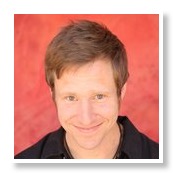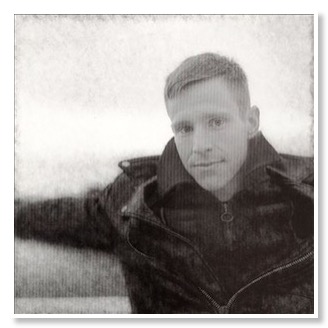May 2016
Big Blues Music
He’s a Texas-based guitarist, interpreter, songwriter and artful harmonica player. But Guy Forsyth has also been a leader in the group called the Asylum Street Spankers, led his own band, and is currently on tour playing his own blend of blues-rock music. As an artist he has verve when playing old time blues or rock, but as an artist he is attentive to Americana folk music. In this interview Forsyth talks about what drives him to keep playing and playing on the road.
G.M. Burns: You have been playing blues music a long time. What keeps music fresh for you?
 Guy Forsyth: Because it gets better. There is always more if you look for it. We stumble onto ecstatic moments, we get to share it.
Guy Forsyth: Because it gets better. There is always more if you look for it. We stumble onto ecstatic moments, we get to share it.
How do you define blues music?
Twelve bars of 1 4 5 with a pentatonic melody, played with a swing, a shuffle, a swagger. The note that hangs just out side of a major key, pulling on your sleeve, wolves in the night, your baby crying. A confession. A public airing of your naughty underside.
We are all adults here, let us lean in and scratch the itch a bit. Also blues is a music form that was first identified in the 1920’s although even then it was characterized as being old and authentic. For me I came to the blues from Lindsay Shannon's blues show on the radio in Kansas City in the late 1980’s in Kansas City, as well as poring through old records at the public library and who can forget the Blues Brothers? First time I heard John Lee Hooker, Big Walter Horton, Matt Murphy was the Blues Brothers movie. Lucky me!
What music did you first listen to early on in your career? (How did those artists help you to play better?)
Muddy Waters. My Buddy Todd Howington turned me on to Muddy in high school. I can still see myself walking down the hall with the Walkman on my head listing to Muddy "Mississippi" Waters (Blue Sky label), and having people ask what I was jamming to. Jerry Portoy, James Cotton, Pinetop Perkins, Bob Margolin, Johnny Winter, it was the perfect antidote to the music of the ‘80s. Passion, heart, grit, there was something there that I did not hear on pop radio. That set the bar pretty high.
I worked for a while in KC doing singing telegrams wile I was living with a stripper on the Missouri side of [the] Stateline. She had a friend who had a great record collection, as she worked at the Grand Emporium, a very strong venue. She had records from Richard Thomson, The Beat Farmers, and Tom Waits. Tom Waits changed my life. I felt understood for the first time. But it was seeing John Hammond for the first time that ruined me for anything else than music. I had to have that passion.
 Can you say which artists you are listening to now?
Can you say which artists you are listening to now?
Still Tom. Also Derek Trucks, Ry Cooder, Steve James, Sonny Ladreth, Kim Wilson, Rod Piazza, Lucinda Williams, Carolyn Wonderland, Seth Walker.
Your songs seem to capture the feelings and memories of people. How do you succeed in writing these songs?
By being in the moment and being honest. There is no other way.
Where do you see blues music heading in the future? (Which artists and musical styles seem to keep blues music going?)
There will always be people who react to honest and passionate music. The form that it takes is not as important as it being true.
Do you enjoy touring? Or is it tricky to be on the road?
Traveling remains the best education available. I have travel in my blood, it's something I have to do.
Would you like to add anything else to what you have said about your music?
I know that I am lucky to get to do what I do, that music is a luxury if you don't do your own singing and playing. I hope to pull my weight.
by G.M. Burns
G.M. Burns: You have been playing blues music a long time. What keeps music fresh for you?

How do you define blues music?
Twelve bars of 1 4 5 with a pentatonic melody, played with a swing, a shuffle, a swagger. The note that hangs just out side of a major key, pulling on your sleeve, wolves in the night, your baby crying. A confession. A public airing of your naughty underside.
We are all adults here, let us lean in and scratch the itch a bit. Also blues is a music form that was first identified in the 1920’s although even then it was characterized as being old and authentic. For me I came to the blues from Lindsay Shannon's blues show on the radio in Kansas City in the late 1980’s in Kansas City, as well as poring through old records at the public library and who can forget the Blues Brothers? First time I heard John Lee Hooker, Big Walter Horton, Matt Murphy was the Blues Brothers movie. Lucky me!
What music did you first listen to early on in your career? (How did those artists help you to play better?)
Muddy Waters. My Buddy Todd Howington turned me on to Muddy in high school. I can still see myself walking down the hall with the Walkman on my head listing to Muddy "Mississippi" Waters (Blue Sky label), and having people ask what I was jamming to. Jerry Portoy, James Cotton, Pinetop Perkins, Bob Margolin, Johnny Winter, it was the perfect antidote to the music of the ‘80s. Passion, heart, grit, there was something there that I did not hear on pop radio. That set the bar pretty high.
I worked for a while in KC doing singing telegrams wile I was living with a stripper on the Missouri side of [the] Stateline. She had a friend who had a great record collection, as she worked at the Grand Emporium, a very strong venue. She had records from Richard Thomson, The Beat Farmers, and Tom Waits. Tom Waits changed my life. I felt understood for the first time. But it was seeing John Hammond for the first time that ruined me for anything else than music. I had to have that passion.

Still Tom. Also Derek Trucks, Ry Cooder, Steve James, Sonny Ladreth, Kim Wilson, Rod Piazza, Lucinda Williams, Carolyn Wonderland, Seth Walker.
Your songs seem to capture the feelings and memories of people. How do you succeed in writing these songs?
By being in the moment and being honest. There is no other way.
Where do you see blues music heading in the future? (Which artists and musical styles seem to keep blues music going?)
There will always be people who react to honest and passionate music. The form that it takes is not as important as it being true.
Do you enjoy touring? Or is it tricky to be on the road?
Traveling remains the best education available. I have travel in my blood, it's something I have to do.
Would you like to add anything else to what you have said about your music?
I know that I am lucky to get to do what I do, that music is a luxury if you don't do your own singing and playing. I hope to pull my weight.
by G.M. Burns


